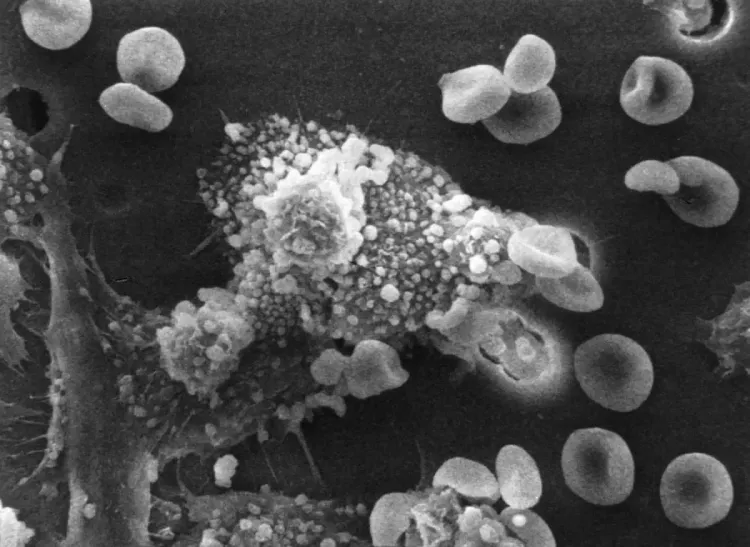Innovative Approach Transforms Tumor-Supporting Cells into Cancer Fighters

Synopsis
Key Takeaways
- International team develops a genetic method for immune cell reprogramming.
- Macrophages, typically supportive of tumors, can be turned into cancer inhibitors.
- CRISPR-Cas9 and AI were key tools in identifying critical genes.
- The gene Zeb2 acts as a master switch in macrophage behavior.
- Successful trials in mice showed reduced tumor size after macrophage reprogramming.
Jerusalem, April 11 (NationPress) An international collaboration of researchers from Israel, the US, and China has unveiled a groundbreaking genetic technique to reprogram a specific type of immune cell, converting them from cancer promoters to inhibitors.
The research, spearheaded by the Weizmann Institute of Science in Israel, concentrated on macrophages—a category of immune cell that can trigger immune responses. However, in numerous cancers, these macrophages become accomplices that shield the tumor, facilitating its growth and even assisting in its spread to other tissues, as reported by the Xinhua news agency.
Utilizing cutting-edge gene-editing techniques along with artificial intelligence, the researchers scrutinized human tumor samples and pinpointed 120 genes that might play a role in this transformation.
“Macrophages exhibit a remarkable versatility, akin to a ‘Swiss knife’ of the immune system, capable of activating various functions suited for different tasks and circumstances,” stated Prof. Ido Amit from Weizmann’s Systems Immunology Department.
These cells have the potential to be potent cancer destroyers, executing numerous antitumor roles, such as fostering anticancer inflammation or alerting other components of the immune system to the threats posed by tumor cells. This is exactly why most solid tumors aim to recruit macrophages to their side for survival.
“By achieving this, tumors shield themselves from the macrophages’ ‘aggressive’ side while also activating macrophage functions that promote their growth, including dampening the activity of other immune cell types and stimulating blood vessel formation to supply oxygen to the tumor,” Amit elaborated.
Through the use of CRISPR-Cas9 gene editing and single-cell analysis, the researchers identified a gene referred to as Zeb2.
The findings indicated that Zeb2 serves as a master switch. When active, it transforms macrophages into cancer supporters; when silenced, macrophages revert to their inherent, cancer-fighting role.
Further investigations revealed that Zeb2 modifies the epigenome—the control center of the genome—activating genes that support cancer while inhibiting those that combat it.
The research team created a DNA molecule designed to deliver a gene-silencing agent directly into macrophages.
In experiments involving mice with bladder cancer, injecting this molecule into the tumor effectively reprogrammed the macrophages, leading to a significant reduction in tumor size.









